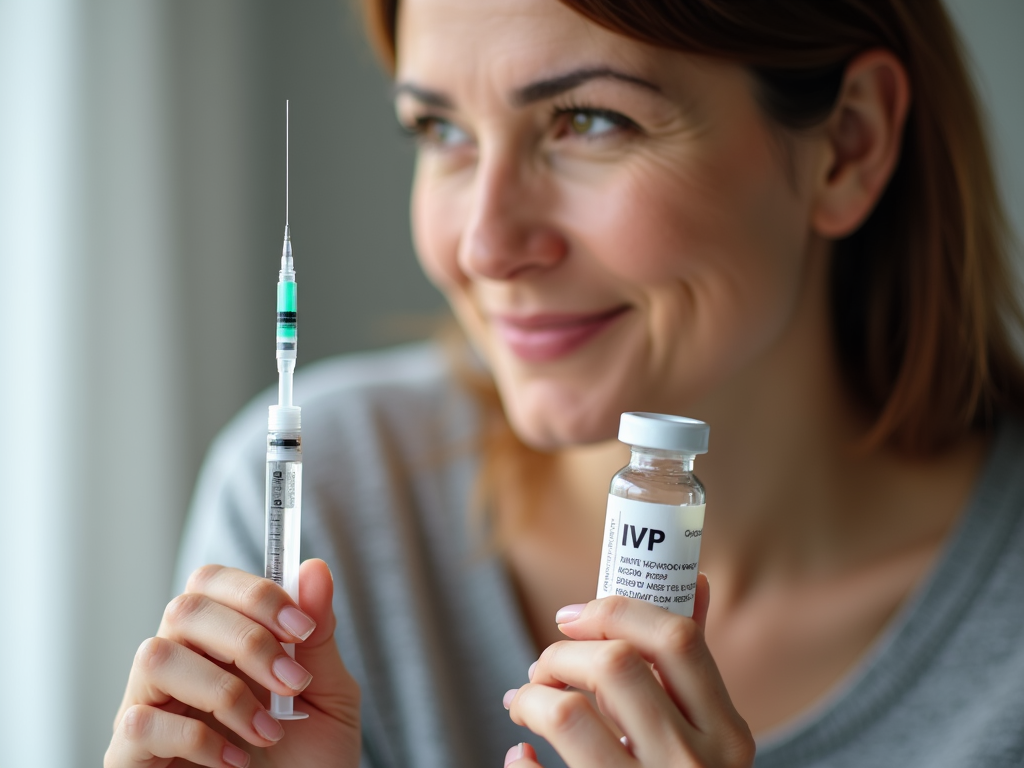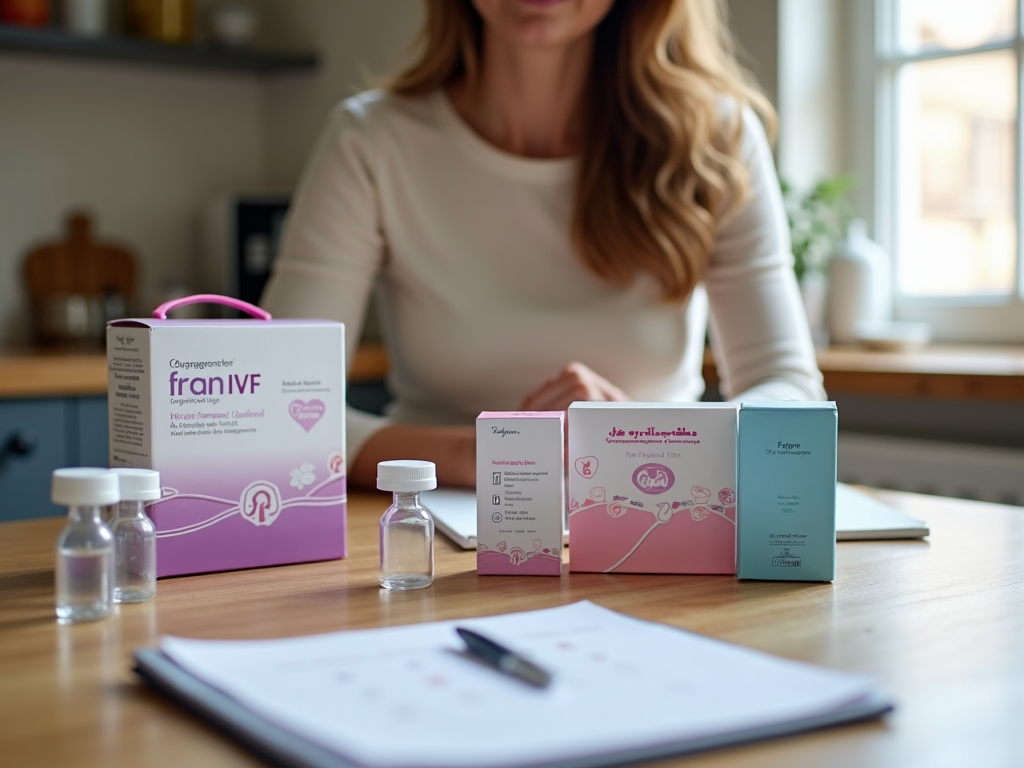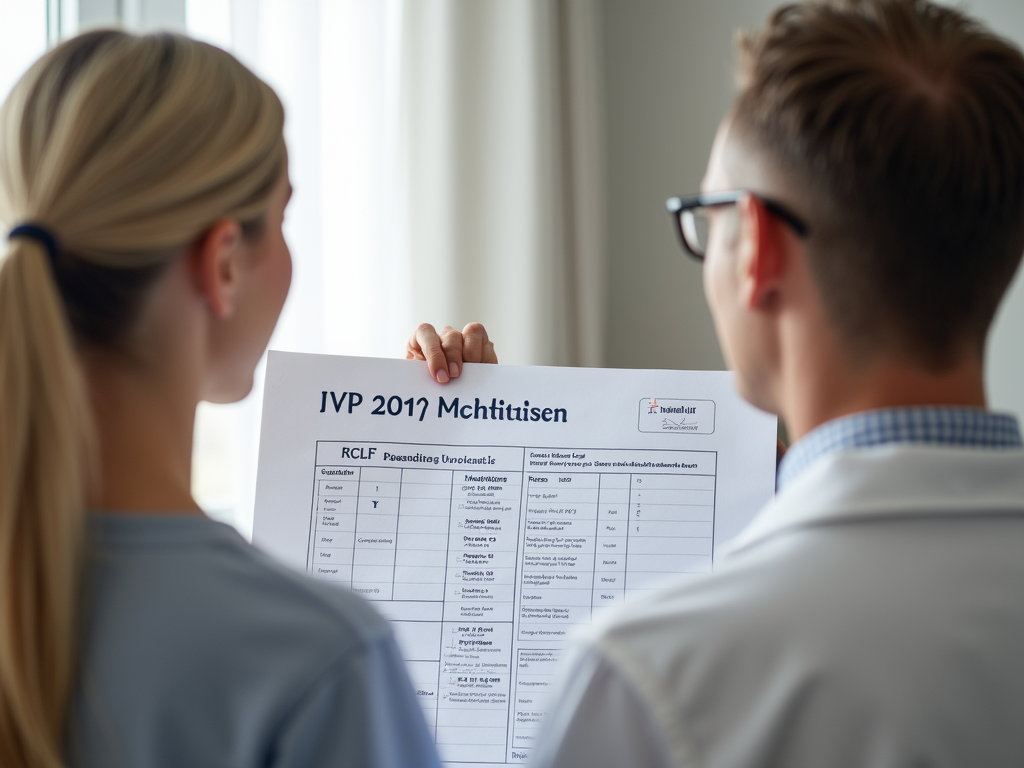Common IVF Medication Questions: Your Guide to Fertility Drugs and Infertility Treatments
March 8, 2025, 5:36 p.m.
In vitro fertilization (IVF) can feel like a big step, and the medications involved often raise lots of questions. This article answers common IVF medication questions, covering fertility drugs, how they work, and what you might experience. Get ready for clear, helpful info to guide you through infertility treatments.

What Are the Most Common IVF Medications?
IVF medications help your body get ready for pregnancy. They’re a key part of infertility treatments. Here’s a rundown of the main fertility drugs you might use:
- Gonadotropins: These boost your ovaries to make more eggs. You’ll see names like Follistim, Gonal-F, or Menopur. They come as shots.
- GnRH Agonists and Antagonists: These stop eggs from releasing too soon. Lupron is an agonist, and Cetrotide is an antagonist.
- Progesterone: This gets your uterus ready for a baby and helps early pregnancy. It can be a shot, suppository, or pill.
- HCG: This triggers ovulation so eggs are ready for retrieval. It’s a one-time injection.
Each drug has a job, and your doctor picks the right mix for you. Knowing what they do can ease some of the worry.
How Are IVF Medications Administered?
Most IVF medications mean needles, which can sound scary. Don’t worry—millions do it, and you can too. Here’s how they’re given:
- Subcutaneous Shots: These go under the skin, like in your belly or thigh. Gonadotropins and antagonists use this method.
- Intramuscular Shots: These go deeper, into a muscle like your butt. Progesterone often comes this way.
- Other Options: Progesterone can also be a vaginal suppository or a pill.
Clinics teach you how to do shots. It’s normal to feel nervous at first, but it gets easier with practice.

What Are the Side Effects of IVF Medications?
Fertility drugs can shake things up in your body. Not everyone gets side effects, but here’s what might happen:
- Bloating or Weight Gain: Your ovaries might swell a bit from stimulation.
- Mood Swings: Hormones can make you feel up and down, like before your period.
- Headaches or Tiredness: These are common but usually light.
- Ovarian Hyperstimulation (OHSS): Rarely, your ovaries overreact, causing pain or nausea. Doctors watch for this.
Talk to your team if something feels off. They can tweak things to keep you comfortable.
How Much Do IVF Medications Cost?
Money’s a big concern with IVF medication. Costs depend on where you live and your insurance. A single cycle might run $3,000 to $5,000 for drugs alone. Here’s how to handle it:
| Tip | Details |
|---|---|
| Check Insurance | Some plans cover meds—call and find out. |
| Look for Discounts | Drug companies may offer savings programs. |
| Ask About Generics | Cheaper versions might be available. |
Clinics often have payment plans too. It’s a lot, but there are ways to make it work.

Are There Alternatives to Traditional IVF Medications?
Some people want options beyond standard IVF medication. Here are a few:
- Natural Cycle IVF: Uses little or no drugs, following your body’s rhythm. It’s simpler but less likely to work.
- Mild Stimulation IVF: Uses smaller doses to get fewer, better eggs.
- Oral Drugs: Pills like Clomid can help, though they’re more for other treatments like IUI.
Ask your doctor if these fit your goals. They might cut costs or side effects, but success rates can vary.
How Do IVF Medications Affect the Body?
These drugs tweak your system to boost pregnancy odds. Here’s what they do:
- Egg Growth: Gonadotropins push your ovaries to make more eggs.
- Timing Control: GnRH drugs stop eggs from popping out early.
- Uterus Prep: Progesterone builds a cozy spot for the embryo.
- Ovulation Kick: HCG ripens eggs for pickup.
Your body might feel different—ovaries can get bigger, and hormones can shift. Doctors keep an eye on everything.

Personal Insights: Handling the Emotional Side
IVF medication isn’t just physical—it’s an emotional ride. Shots every day, waiting for results, and hoping it works can wear you out. Here’s what I’ve learned:
- Lean on Someone: My husband was my rock. Find your person—it helps.
- Take Breaks: I’d read or walk to clear my head. Do what calms you.
- Learn the Basics: Knowing why I took each drug cut my stress.
- Talk It Out: My nurse was a lifeline when I felt lost.
It’s okay to cry or feel scared. You’re doing something brave, and support is out there.
Tips for Managing IVF Medications
Staying on track with fertility drugs takes effort. Try these:
- Set Reminders: Use your phone to remember shot times.
- Organize Supplies: Keep meds in one spot with a checklist.
- Ask Questions: Call your clinic if you’re unsure—better safe than sorry.
I kept a little notebook. It felt good to check things off and know I was in control.

What to Expect During Treatment
IVF medication follows a schedule. First, you stimulate your ovaries for about 10-14 days with gonadotropins. Then, HCG triggers egg release. After retrieval, progesterone supports the next steps. You’ll visit the clinic often for ultrasounds and blood tests. It’s busy, but each step moves you closer to your goal.
Summary
Common IVF medication questions pop up for anyone starting this journey. From understanding fertility drugs to managing shots, side effects, and costs, it’s a lot to take in. Infertility treatments can test you, but they also offer hope. Stay curious, ask your doctor everything, and lean on your people. You’ve got this.